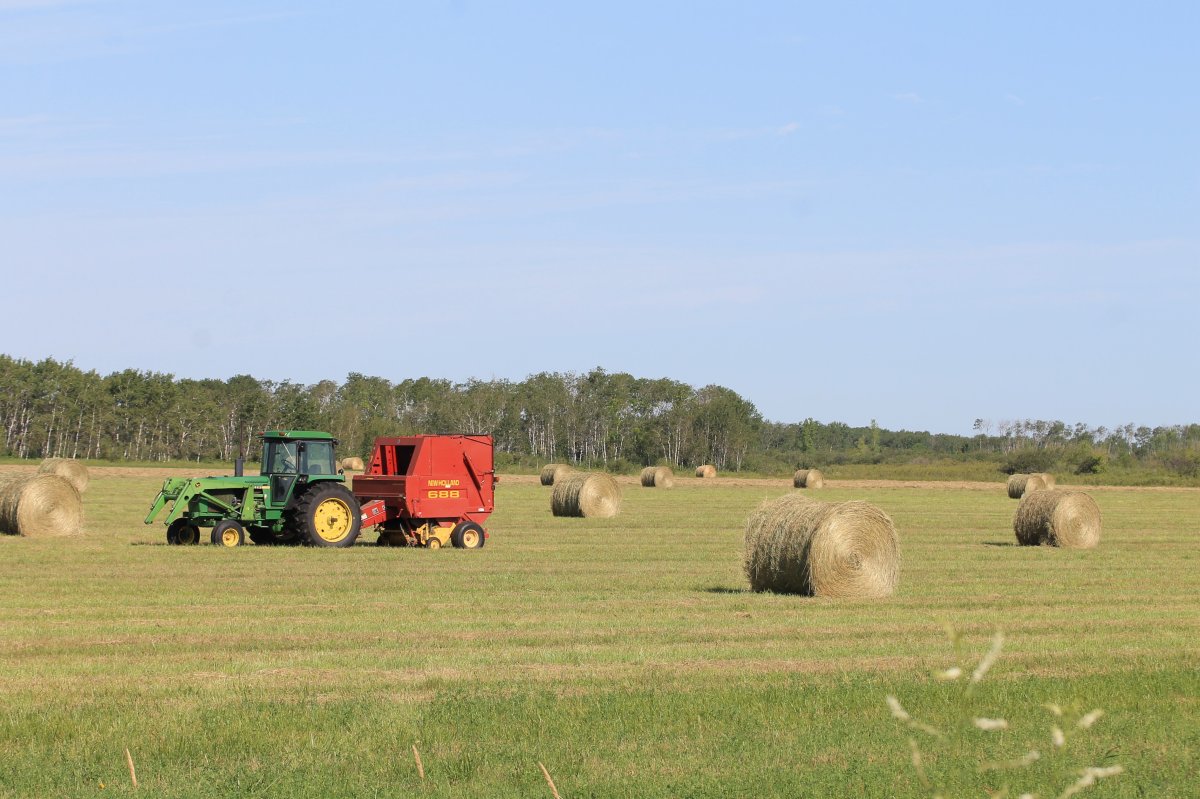Manitoba farmers are getting ready for the 2020 planting season, while the world continues to deal with the COVID-19 pandemic.

The fall harvest was a tough one for many in Manitoba, as the season saw high amounts of precipitation and early snowfalls that hampered farmer’s ability to get their crops off fields.
“Grain farmers are getting into place. They’re prepping their seed and fertilizer, and equipment to ensure it’s running,” said Keystone Agricultural Producer’s Patty Rosher.
“If the weather cooperates and the soil warms up, you should be seeing tractors in the field working away and that’s going to be great.”
Atop of farmers bouncing back from a tough harvest, many are now adjusting to the COVID-19 pandemic and some of the new challenges it brings.
Beekeepers and vegetable producers rely on temporary foreign workers to help keep farms running.
Rosher said the federal government has been working on a plan in place to ensure migrant farm workers can still come into the country and carry out their duties safely.
“They have been working to open the borders to get them out of their countries and also be safe on the farms. They’ll have to quarantine for two weeks and practice social distancing on the farm,” she said.
Given the restrictions, the pandemic means farmers will be looking to locals — many of whom have been feeling the impact of job losses — to help on the farm.

Get breaking National news
“We have made the job postings public. I have heard anecdotally that some farms have been able to hire locally, which is great,” Rosher said.
“We do have a shortage of agriculture workers in the country. So, if we’re able to make connections now, we might have more locals working in agriculture.”
Rosher said some farmers expect production to be down a bit as they make adjustments to their staffing.
“This will be as they wait for people to come in from other countries, hiring locals or making do with the staff they have.”
Livestock producers feeling nervous
KAP said Livestock producers are concerned as processing plants are reducing production or closing due to COVID-19.
“One of the largest pork processing plant has shut down in the states. Although we don’t ship many hogs to the U.S. for processing, you do still feel the impact of prices. Hog prices are at a loss right now,” said Rosher.
Beef producers in the province are starting to feel effects as well, as some Canadian and American plants are adjusting or shutting down operations due to the virus.
“The real impact for our producers is such market volatility in terms of price and what they can get for their animals,” says Carson Callum, general manager of Manitoba Beef Producers.
“Some producers across the province have already taken a financial hit due to these different decreases in restaurant demand and decreases in overall processing capacity, so that financial hit is a major concern.”
Callum says the industry is continuing to provide recommendations to the government to help producers maintain financial stability.
“There’s a lot of different aspects in the supply chain that are affected right now and processing capacity is a definite concern with this COVID-19 virus,” Callum says.
Rosher said she will be keeping in close contact with its members as the situation is quickly evolving, but there are some people they’re grateful for.
“We’re really grateful for the truck drivers who keep supply chains healthy and product moving.”

Questions about COVID-19? Here are some things you need to know:
Health officials caution against all international travel. Returning travellers are legally obligated to self-isolate for 14 days, beginning March 26, in case they develop symptoms and to prevent spreading the virus to others. Some provinces and territories have also implemented additional recommendations or enforcement measures to ensure those returning to the area self-isolate.
Symptoms can include fever, cough and difficulty breathing — very similar to a cold or flu. Some people can develop a more severe illness. People most at risk of this include older adults and people with severe chronic medical conditions like heart, lung or kidney disease. If you develop symptoms, contact public health authorities.
To prevent the virus from spreading, experts recommend frequent handwashing and coughing into your sleeve. They also recommend minimizing contact with others, staying home as much as possible and maintaining a distance of two metres from other people if you go out.
For full COVID-19 coverage from Global News, click here.








Comments